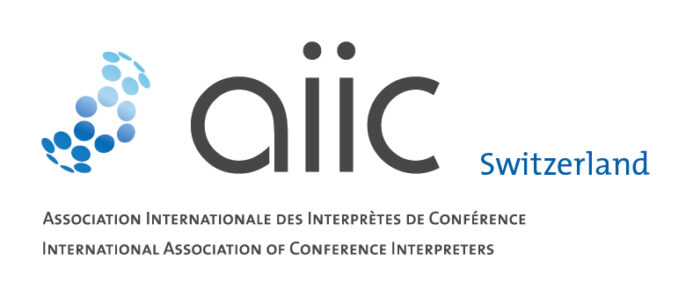Geneva, Rawdha Cammoun-Clavería, December 2020
(translation into English by Peter Clayburn)
The Swiss region has begun considering how AIIC might position itself in relation to commercial interpretation platforms. In spring 2020, the region organised a series of webinars open to all regions of AIIC and then set up  an ad hoc working group focusing on Jitsi, the open-source videoconferencing software. The idea of probing this alternative solution to commercial platforms was put forward by Tomás Pereira Ginet-Jaquemet, a pre-candidate of AIIC France, who had been a guest speaker at the first webinar. The working group reported its findings at AIIC Switzerland’s regional meeting on 3 October 2020, where an open and informative debate took place around this major issue. The AIIC Switzerland Regional Bureau has compiled and disseminated this press review with the aim of preserving the fruits of the working group’s labour and enabling all AIIC regions to benefit from it, while also providing an informed and structured basis for others to move forward with this collective effort. Below, we offer a taster of the articles in the review.
an ad hoc working group focusing on Jitsi, the open-source videoconferencing software. The idea of probing this alternative solution to commercial platforms was put forward by Tomás Pereira Ginet-Jaquemet, a pre-candidate of AIIC France, who had been a guest speaker at the first webinar. The working group reported its findings at AIIC Switzerland’s regional meeting on 3 October 2020, where an open and informative debate took place around this major issue. The AIIC Switzerland Regional Bureau has compiled and disseminated this press review with the aim of preserving the fruits of the working group’s labour and enabling all AIIC regions to benefit from it, while also providing an informed and structured basis for others to move forward with this collective effort. Below, we offer a taster of the articles in the review.

In his article ‘Defending against unwanted intermediaries’(translated into French by Aymeric de Poyen Bellisle), Maxwell Crisp, a member of the ad hoc working group, offers a detailed technical analysis of the dangers of commercial platforms as middlemen – and of burying our heads in the sand in response to them.
Guillaume Wehrlen argues the case against AIIC’s developing its own videoconferencing system and presents a carefully crafted argument against ‘The dangers of doublespeak’ (translated into English by Rebecca van Horck).


Conversely, in the jointly authored ‘A platform by and for interpreters: Engaging with platform development to reflect a changing profession‘ (translated into English by Alistair Clarke),Clémence Amat and Marie Veyrat

maintain that the time has come for AIIC to innovate and take the lead by developing Jitsi as a videoconferencing platform.

Meanwhile, Aymeric de Poyen Bellisle gets straight to the point in ‘Calling a spade a spade’ (translated into English by the author and reviewed by Maxwell Crisp), where he sets out the key elements that should be borne in mind, and the main pitfalls to avoid, should AIIC decide to embark upon the task of developing its own platform. Nor did the other AIIC Regions fail to step up to the mark.

After attending the webinars, Emmanuel Sombsthay of AIIC France was inspired to write ‘RSI and IA: a threat to our profession?’ (translated into English by the author); in this article, he invites us to be wary of the questionably named artificial intelligence and argues for a re-appropriation of the tools of our trade.
Finally, in her article ‘Who’s Afraid of the Big Bad Wolf? Random thoughts on the evolution of the office of conference interpreting’ (translated into English by

Abdellah Regragui, AIIC Arab Countries), Michèle Homsi, also of AIIC Arab Countries, shares her thoughts on why AIIC must be bold in assisting the profession and ensuring that those tools of the trade are returned to our control. She argues that interpreters represent the content without which commercial platforms would seem like nothing more than ‘empty shells’.
Huge thanks go to all these colleagues – members of AIIC Switzerland, members of other AIIC regions and non-members alike – for their invaluable contributions, each of which is a key component in this collective achievement. We can no longer doubt (if doubt we ever did) that AIIC is brimming with outstanding potential.
We hope that this press review will serve as a starting point for a wide-ranging, open and constructive process of enquiry within AIIC, our association.
